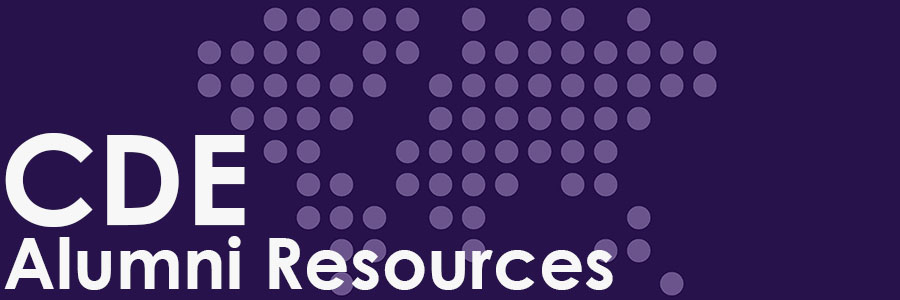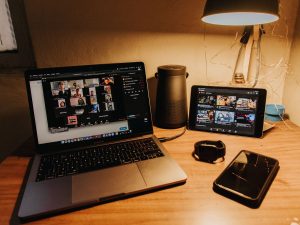Video
Are there any video sources that you enjoy accessing that we're missing here? What about Youtube Channels and speakers from your home country? Share the sources you like, whether in English or another language, with us by emailing Chrispine at crl2 (at) williams (dot) edu, and we'll put them up here.
Videos can be a great way to learn and hone your English skills.
The first step is to find videos you like, whether because they're entertaining, engage your interest, or even if you think one of the recurrent characters is cute (hey, we all have our reasons).. Finding something interesting is what makes you want to keep coming back to it, and consistency is key when it comes to any learning, and language-learning in particular.
The videos we recommend here are ones we think might be useful and interesting for you. As you browse through them, let us know by emailing Jillian at jrs7 (at) williams (dot) edu if there were videos you liked or disliked, and we'll try to recommend more of the things you like.
For tips on using podcasts to learn English, see our podcasts page.
The best situation is one in which you would have some English to watch or listen to every day. Try incorporating it into something you already do in a routine. Are you a coffee-drinker? Then download a podcast episode or pull up a video from our recommendations, and listen for the three minutes it takes for your coffee to brew. Or put on an English-language video with subtitles while you're brushing your teeth, or washing the dishes, or doing your laundry...
If you're just getting into the groove of things, don't try for too much. If you set yourself the goal that "I'm going to listen to English for an hour a day" when you currently don't use it at all, it's going to be hard for you to stick to it. Start small, like listening for a couple minutes, or looking up a word or two that you don't know, while you're doing something else that's part of your routine.
Then, as it becomes a part of your routine, you can start adding in more goals, like learning five words a day, or writing a couple sentences for yourself in a journal you keep every day.
- If you're somewhere with not-so-great internet, check out Marginal Revolution University's online learning courses.
- The online courses are run as videos plus questions you can answer. All videos are available to download in MP4 format (click "Download" under the video, and then if necessary right-click on the video and "Download as..").
- In addition to online courses about Development Economics, Principles of Microeconomics, Principles of Economics, Data Skills, and so forth, they also have courses on topics such as the Economic History of the Soviet Union, the Eurocrisis, Great Economists...
- The courses are run by George Mason University professors Tyler Cowen and Alex Tabarrok, two quirky personalities in the econ world. They also run the Conversations with Tyler podcast, an interview-format podcast in which Tyler discusses anything that's on his mind with some of the great and funky people of our age; and the Marginal Revolution blog.
- Many of MIT's OpenCourseWare (free online) courses also include audio or video (some of those also have captions).
- Video is generally available to download in MP4 format
- The courses typically include video lectures, assignments with solutions, caption files / transcripts, and exam files with solutions
- Working your way through some of these courses is a great way to engage deeply with English material.
- You don't need to feel limited to economics: MIT OpenCourseWare includes courses on just about anything you could possibly want to learn.
- For example, I've been meaning to start one on an Introduction to Computer Science and Programming in Python
- Or, why not check out a new course out about The Meaning of Life ?
- What cooler way to keep your English sharp than by pondering humanity's biggest questions?
- If you're looking for general learning, also check out the BBC's language-learning resources. You can download their audio and transcripts, and choose topics according to your level of comfort.
Check out our podcast page for more detailed tips about how to use resources like audio, video, and a transcript to help boost your English skills.
You don't need to be in an English-speaking country to learn good English or keep your English sharp.
You've surely seen people who migrate to your home town but don't learn the local language (often American expats are a good example of this), which shows that having the environment doesn't necessarily mean that someone will learn the language.
Conversely, not being in the country doesn't mean you can't learn the language. It just means you have to be creative.
When you watch videos, pause them frequently if you run across words you wouldn't use in conversation, and try to imitate the speaker as best as you can. Pretend you're a comedian imitating the person speaking, and that it's your task to sound as close to the speaker while also exaggerating the tones, sounds, and gestures of the speaker. This will make your brain engage more creatively with the sounds, and will help you pick up the natural cadence. If you think it's too far overboard and your imitation sounds silly, chances are that you're doing it just about right.
Our Latest Recommendations
IDEAS is hosting a calendar of all the webinars they can find related to development. Check back often if you have some time and want to learn something new!
Here is a virtual tour of the new CDE building with Prof. Caprio!
- « Previous
- 1
- 2
New from the Source:
 Econ Films
Econ Films
- What's going on with unemployment? December 30, 2019
- What's the impact of trade wars? December 30, 2019
Our favorite sources for the latest research
VoxDev provides executive summaries, blogs, podcasts and videos on the latest in development research. We also like their newsletter.
The Brookings Institution is the intellectual home for many a public-policy figure after they've left the spotlight. Based in Washington, D.C., some of their content is US-centric, but because of all that policy nous they have accumulated, their foreign affairs analyses are also very sharp.
The Peterson Institute for International Economics does a lot of great work on questions that affect multiple countries.
Marginal Revolution is a blog run by Georgetown economists Tyler Cowen and Alex Tabarrok. It's quirky, but they're a universally curious bunch, and they tend to see new trends in economics coming up before they've hit the mainstream.
The New York Times writes with a certain upper-middle-class New-England flavor, but they do tend to keep abreast of some of the latest developments in economics research, and their Covid-related coverage is now free.
An economics-research list wouldn't be complete without The Economist. Although their subscription is paid, you can check out their podcasts, which include snippets from interviews that they write about in their weekly subscription, as well as a selection of the audio versions of three of their weekly articles. If you're a dedicated podcast listener in lieu of buying a subscription, you won't be missing much.
Oh, and their covid-related coverage is also free.

